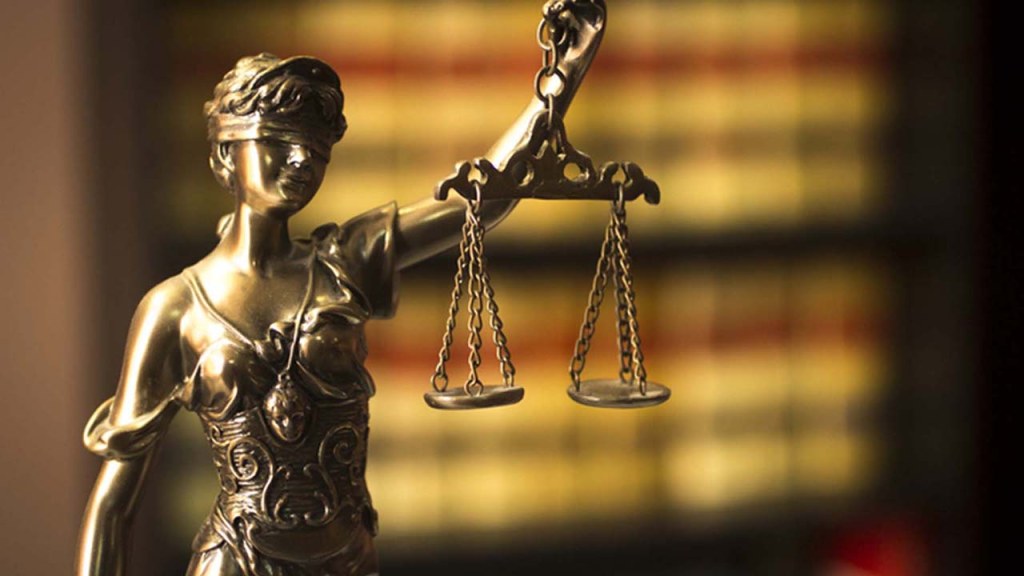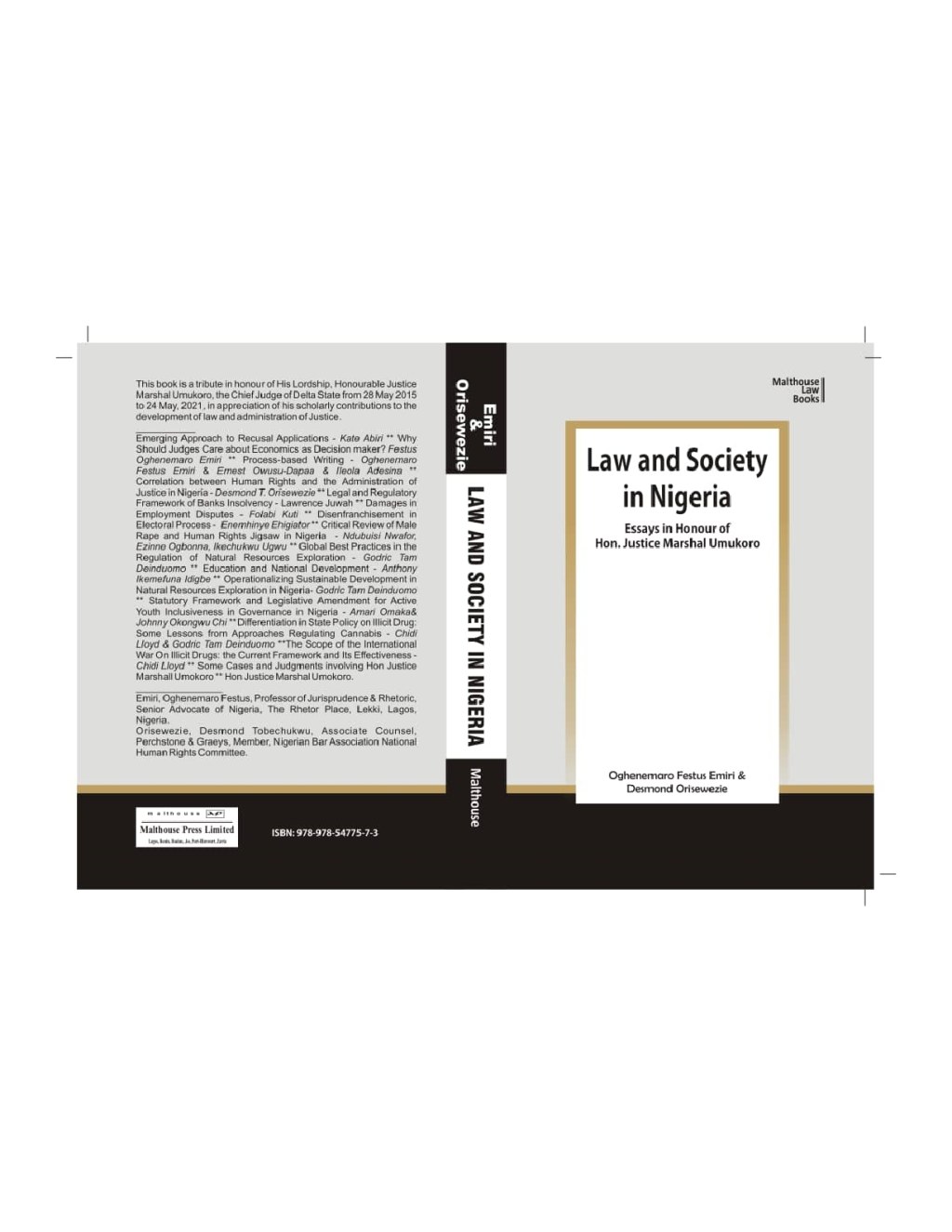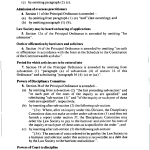Empowering Nigeria: Unlocking The Potential Of Law And Society In Nigeria For A Brighter Future
Law and Society in Nigeria
Greetings, Readers! Today, we will delve into the fascinating topic of law and society in Nigeria. Nigeria, the most populous country in Africa, has a complex legal system that plays a crucial role in shaping its society. In this article, we will explore the various aspects of Nigerian law, its significance, and its impact on the Nigerian people. So, let’s embark on this informative journey together!
Introduction
1. The Nigerian Legal System: An Overview
3 Picture Gallery: Empowering Nigeria: Unlocking The Potential Of Law And Society In Nigeria For A Brighter Future



The legal system in Nigeria is a combination of traditional laws, customary practices, and modern legal principles. It is a unique blend of British colonial influence, Islamic law, and indigenous customs. The Nigerian legal system consists of both written and unwritten laws, with the Constitution serving as the supreme law of the land.
2. The Role of Law in Nigerian Society

Image Source: lawandsocietymagazine.com
Law plays a pivotal role in Nigerian society by ensuring order, justice, and protection of individual rights. It serves as a framework for social interaction, resolves disputes, and upholds the principles of fairness and equality. The legal system provides a mechanism for citizens to seek redress, promotes accountability, and contributes to the overall development of the nation.
3. The Nigerian Judiciary: Guardians of Justice
The Nigerian judiciary is responsible for interpreting and applying the law. It consists of various courts, including the Supreme Court, Court of Appeal, and High Courts. Judges are appointed based on their expertise and integrity, and they play a crucial role in upholding the rule of law and ensuring access to justice for all Nigerians.

Image Source: rgstatic.net
4. Legal Education and Profession in Nigeria
Legal education in Nigeria is rigorous and highly regarded. Aspiring lawyers must complete a Bachelor of Laws (LL.B) degree, followed by a one-year professional training program at the Nigerian Law School. The legal profession offers diverse career opportunities, including private practice, public service, academia, and corporate law.
5. Law Enforcement and Challenges

Image Source: malthouselagos.com.ng
Law enforcement in Nigeria is primarily carried out by the Nigeria Police Force. However, the country faces various challenges, such as corruption, inadequate resources, and a lack of public confidence in the justice system. Efforts are being made to enhance training, improve infrastructure, and promote transparency to address these issues.
6. International Legal Relations
Nigeria is an active participant in international legal affairs. It is a member of various international organizations, such as the United Nations and the African Union. The country collaborates with other nations to address global challenges, ensure compliance with international law, and promote peace and security.
7. The Future of Nigerian Law and Society
The future of law and society in Nigeria holds great potential for growth and development. As the nation continues to evolve, there is a need for ongoing reforms to enhance the legal system, increase access to justice, and address socio-economic disparities. The Nigerian people, legal professionals, and policymakers play key roles in shaping this future.
What is Law and Society in Nigeria?
Law and society in Nigeria refer to the intricate relationship between the legal system and the Nigerian people. It encompasses the ways in which laws are created, implemented, and enforced, and how they impact individuals, communities, and the nation as a whole.
Law and Society: Understanding the Dynamics
Law and society in Nigeria are deeply interwoven, influencing each other in multiple ways. The legal system reflects societal values, norms, and aspirations, while also shaping social behavior and relationships. It provides a framework for resolving conflicts, safeguarding rights, and promoting order and justice.
At the same time, society, with its diverse cultural, religious, and ethnic backgrounds, influences the development and application of the law. Customary practices, traditional norms, and religious beliefs often intersect with statutory laws, creating a complex legal landscape that requires careful consideration and understanding.
Law and society in Nigeria are not static but constantly evolving. As societal needs and aspirations change, the legal system adapts to address these challenges. The coexistence of traditional, religious, and modern legal principles adds richness and complexity to the Nigerian legal framework, making it a dynamic and fascinating field of study.
Who is Involved in Law and Society in Nigeria?
The involvement in law and society in Nigeria is not limited to legal professionals alone. Various stakeholders play integral roles in shaping and influencing the legal landscape of the country. These include:
1. Legal Professionals:
Lawyers, judges, legal scholars, and law enforcement officers are at the forefront of the Nigerian legal system. They interpret and apply the law, advocate for justice, and ensure the rule of law is upheld.
2. Government and Policymakers:
The Nigerian government and policymakers are responsible for enacting and amending laws, implementing legal reforms, and promoting good governance. They play a crucial role in shaping the legal framework and ensuring its effectiveness.
3. Civil Society Organizations:
Civil society organizations, such as human rights groups, advocacy organizations, and community-based associations, contribute to law and society in Nigeria by promoting access to justice, advocating for legal reforms, and providing legal aid to marginalized communities.
4. Citizens:
The Nigerian people are vital participants in the legal system. They have rights and responsibilities under the law and are active stakeholders in shaping legal norms, values, and practices. Citizens engage with the legal system by seeking legal redress, participating in legal processes, and advocating for their rights.
5. International Community:
The international community, through organizations like the United Nations, the International Criminal Court, and regional bodies, plays a significant role in influencing Nigerian law and society. International conventions, treaties, and agreements provide a framework for cooperation, human rights protection, and legal harmonization.
When Did Law and Society Develop in Nigeria?
The development of law and society in Nigeria spans centuries, influenced by a blend of historical, cultural, and colonial factors. The evolution of Nigerian law can be categorized into the following periods:
1. Pre-colonial Era:
Before the arrival of European colonial powers, Nigeria had a rich legal heritage based on customary practices and indigenous laws. Different ethnic groups had their own legal systems, with strong community participation in dispute resolution.
2. Colonial Era:
During the colonial era, Nigeria came under British rule. The British introduced English common law and established courts to administer justice. The legal system became dualistic, with customary laws operating alongside British laws.
3. Post-independence Era:
After gaining independence in 1960, Nigeria began the process of decolonization and nation-building. The Nigerian legal system was reformed and adapted to suit the needs of the newly independent nation. The Constitution of Nigeria was adopted, providing the framework for the legal system.
4. Contemporary Era:
In the contemporary era, Nigeria continues to refine and develop its legal system. Legal reforms are being undertaken to address the evolving needs of society, promote human rights, and ensure access to justice. The legal profession is also evolving, with increased emphasis on specialized areas of law, such as technology, intellectual property, and environmental law.
Where Does Law and Society Apply in Nigeria?
Law and society in Nigeria apply to various aspects of individual and communal life. It extends to:
1. Civil Law:
Civil law encompasses contractual matters, property disputes, family law, and personal injury cases. It provides a framework for resolving conflicts between individuals and protects their rights and interests.
2. Criminal Law:
Criminal law deals with offenses against the state or society. It addresses crimes such as theft, assault, murder, and corruption. Criminal law aims to maintain public order, punish offenders, and protect the rights of victims.
3. Constitutional Law:
Constitutional law governs the relationship between the government and its citizens. It establishes the powers and limitations of the government, protects fundamental rights, and ensures the rule of law.
4. International Law:
Nigeria is a member of the international community and is bound by international law. It participates in international treaties and agreements, respects human rights conventions, and contributes to global legal obligations.
5. Customary Law:
Customary law is prevalent in Nigeria, particularly in rural areas and among indigenous communities. It is based on traditional practices, customs, and norms and is often administered by traditional rulers and community leaders.
Why is Law and Society Important in Nigeria?
Law and society are of utmost importance in Nigeria for several reasons:
1. Order and Stability:
The legal system provides a framework for maintaining order, resolving disputes, and promoting stability within society. It ensures that individuals and communities can live harmoniously and peacefully.
2. Protection of Rights:
Law and society uphold and protect the rights of individuals. Fundamental rights such as freedom of speech, equality, and fair trial are enshrined in the Nigerian Constitution and other relevant laws.
3. Access to Justice:
A robust legal system ensures that citizens have access to justice. It provides mechanisms for resolving conflicts, seeking redress, and holding wrongdoers accountable.
4. Social Development:
Law and society contribute to social development by promoting fairness, equality, and accountability. They provide a framework for economic growth, protect investments, and attract foreign direct investment.
5. Nation Building:
The legal system plays a vital role in nation-building by establishing the rule of law, preserving national unity, and promoting good governance. It fosters a sense of belonging and shared values among the Nigerian people.
How Does Law and Society Function in Nigeria?
Law and society in Nigeria function through a complex network of institutions, processes, and interactions. The key components include:
1. Legislation:
Legislation involves the process of making laws. The Nigerian National Assembly, comprising the Senate and the House of Representatives, is responsible for enacting laws at the federal level, while state assemblies handle legislation at the state level.
2. Judiciary:
The judiciary interprets and applies the law, ensures the rule of law, and resolves disputes. It consists of various courts, with the Supreme Court as the highest appellate court in Nigeria.
3. Law Enforcement:
The Nigeria Police Force is primarily responsible for law enforcement. They maintain public order, investigate crimes, and apprehend offenders. Other agencies, such as the Economic and Financial Crimes Commission (EFCC) and the Independent Corrupt Practices Commission (ICPC), focus on specific areas of law enforcement.
4. Legal Profession:
The legal profession comprises lawyers, judges, and legal scholars. Lawyers provide legal advice, represent clients in court, and contribute to legal scholarship. Judges, appointed based on their expertise and integrity, adjudicate disputes and ensure justice is served.
5. Legal Education:
Legal education in Nigeria is provided by various universities and the Nigerian Law School. Aspiring lawyers undergo rigorous training to acquire the necessary knowledge and skills to practice law.
6. Access to Justice:
Access to justice is a fundamental aspect of law and society in Nigeria. Efforts are being made to enhance access to justice, particularly for marginalized communities, through initiatives such as legal aid programs, alternative dispute resolution mechanisms, and mobile courts.
Advantages and Disadvantages of Law and Society in Nigeria
Law and society in Nigeria have both advantages and disadvantages. Let’s explore some of them:
Advantages:
1. Protection of Rights: The legal framework in Nigeria safeguards the fundamental rights and freedoms of individuals, providing them with legal recourse in case of violations.
2. Order and Stability: The legal system promotes order and stability within Nigerian society, ensuring peaceful coexistence and resolving disputes.
3. Access to Justice: Law and society in Nigeria strive to provide access to justice for all citizens, regardless of their socio-economic status, ethnicity, or gender.
4. Economic Growth: A strong legal system encourages economic growth by protecting investments, promoting business transactions, and attracting foreign direct investment.
5. International Collaboration: Nigeria’s participation in international legal affairs allows for collaboration and cooperation with other nations, ensuring compliance with international standards and addressing global challenges.
Disadvantages:
1. Corruption: Nigeria faces significant challenges in combating corruption within the legal system. Corruption undermines the rule of law, erodes public trust, and hinders socio-economic development.
2. Inadequate Resources: Limited resources, including funding, infrastructure, and personnel, pose challenges to the effective functioning of the legal system, leading to delays in justice delivery.
3. Complexity: The coexistence of multiple legal systems, including customary law, Islamic law, and statutory law, creates complexity and challenges in harmonizing and implementing legal principles.
4. Gender Inequality: Despite progress, gender inequality persists in Nigeria’s legal system. Women face barriers in accessing
This post topic: Law and Society

